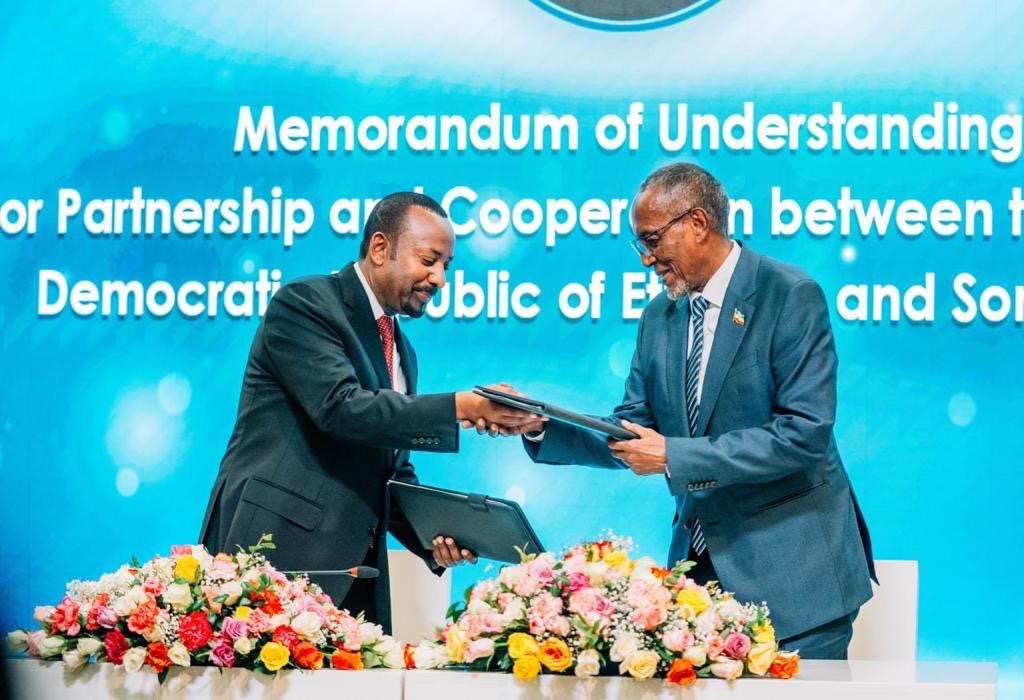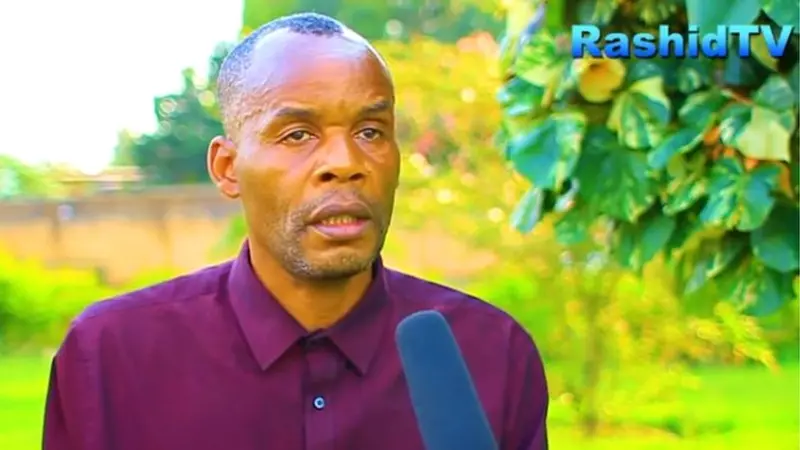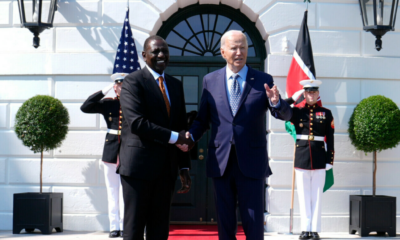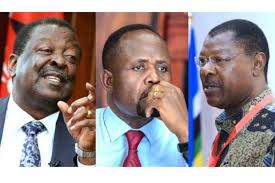Shikoh Kihika, Tribeless Youth: Fighting Tribal Politics Before 2027 Elections
With her activism, Shikoh Kihika seeks to re-educate her Kenyan base, about the futility of possessing insular ideas that lead to ethnic clashes every election cycle.
:Shikoh Kihika’s Tribeless Youth: Championing Diversity, Fighting Tribal Politics, and Shaping Kenya’s Future Ahead of 2027 Elections
By Charles Wachira
Shikoh Kihika, is the Executive Director of Tribeless Youth (TY), a four-year-old community-based initiative stitched up by a group of youths drawn from Nakuru County who according to this 25-year-old- “ saw the need to speak out against the injustices bedevilling Kenya wrought by tribal politics. ”
Based in Nakuru County, the country’s third largest city after the capital Nairobi and the port-based Mombasa metro, TY -which is a membership organisation – now has a footprint in seven counties including in Nakuru, Laikipia, Baringo, Nairobi, Kisumu, Uasin- Gishu and Kisii out of the country’s total of 47.
Conspicuously the seven counties have played out as flashpoints in every cycle of elections beginning Dec 1991. Then the heavy-handed administration of Daniel arap Moi grudgingly capitulated to a global momentum driven by the momentous collapse of the Wall of Berlin on 9 November 1989 leading to a return to plural democracy here after a hiatus of 14 years.
It turns out, that the fall of the Berlin Wall symbolised the apocalypse of totalitarianism beginning in Europe and eventually trickling down to the Asian and African continents.
Verifiably polls held in 1992, 1997, 2007, 2013 and 2017 in East Africa’s largest economy have routinely witnessed political violence, leading thousands of people to be killed and tens of thousands of others displaced in ethnic-related clashes.
These sanguinary acts, perpetrated by politics of identity, encapsulate the Achilles heel hindering the growth of national politics based on bread-and-butter issues. And if not gridlocked, embolden a future fraught with real possibilities of stirring secession and further bloodshed.
“Since independence, it’s evident that Kenyan politics has been characterized by ethnic tensions. But it was not until 2007/2008 that the demons of tribalism flared up after the hotly disputed national elections which left more than 1,000 people dead and thousands of others internally displaced. Numerous attempts to slay the dragon of tribalism have not been easy. Commissions have been formed, songs composed, and wars fought but still, we are not yet there in identifying the root cause of tribalism,” says Shiko who in 2018 emerged the runners-up in the national Diversity and Inclusion Awards & Recognition (DIAR), in the social media category.
The DIAR is a premier platform that recognises individuals and organisations in Kenya that promote diversity and inclusion.
“ It was against this backdrop that Tribeless Youth sought to change the tribal script in our country, making it hard for politicians to play the tribal card…. The aim of founding the organisation was to try to demystify the ideologies of ‘my tribe, my people’ to enhance unity amongst Kenya’s younger generation and turn them into change-makers,” says Shikoh.
Kenya is a youthful country with 75 % of its population aged between 18- and 35 years, according to the United Nations Human Rights Office of the High Commissioner (OGCHR), with a large percentage unemployed and feeling marginalised in terms of access to opportunities, representation and participation.
Taking cognisant of the existential fact that a country cannot move progressively forward where a section of its populace plays the ageism card TY also soaks from the knowledge possessed by the elderly in society in an endeavor geared at changing the narrative “ that tribes are the problem by going back in history and using these lessons and experiences to redefine the future. This in turn helps young people to use history carried by the elderly to draw parallels about political participation then and now,” explains Shikoh.
In a working paper titled “ Sources of Ethnic Identification in Africa “ written by Edward Miguel, an Assistant Professor of Economics at the University of California, Berkeley, and Daniel N. Posner, an Assistant Professor in the Department of Political Science at the University of California, Los Angeles there is a symbiotic relationship between the intensity of political and economic competition and the salience of ethnicity.
“ … It’s’ clear that as African countries institute democratic and market reforms it will become more urgent – not less – for African governments to develop policies and institutional mechanisms that are capable of dealing with ethnic divisions. Kenya’s recent political developments are informative. After the reintroduction of competitive multi-party politics in the early 1990s, Kenya’s reform efforts have increasingly become mired in tribal politics, including violent ethnic clashes that left hundreds dead. Policies and institutions such as those in place in neighbouring Tanzania – a country known for its efforts at nation-building through the promotion of Swahili as a national language, and public education, might serve as a model for how Kenya, and other African countries, could dampen destructive ethnic divisions.”
To run TY, Shiko receives funding from generic local and international organisations including MidRift Hurrinet, a human rights organisation based in Nakuru, the Humanist Institute for Cooperation with Developing Countries (Hivos), VOICE Global and the FORD Foundation.
What achievements has TY achieved in its four years of existence?
“ As an organisation, having to mobilise and work together with various government agencies such as security sectors and county governments, civil society organisations, private sector and institutions of higher learning to address problems that bedeck our society such as corruption, extrajudicial killings and advocate for human rights, good governance and social justice has been our highlights,” says Shiko who seeks to entrench TY firmly across all the 47 counties in Kenya with young people at the helm of its leadership.
With Kenya scheduled to hold elections in 2027 Shiko certainly has her job cut out.
Keywords: Shikoh Kihika: Tribeless Youth: Tribal politics: Kenyan elections:Diversity and inclusion
Politics
Kenyan Man Convicted in U.S. for 9/11-Style Terror Plot
In pre-trial documents, prosecutors stated that Cholo Abdi Abdullah planned to sit passively during the proceedings, accepting the outcome without challenge, as he viewed the court as an illegitimate system.
In pre-trial documents, prosecutors stated that Abdullah planned to sit passively during the proceedings, accepting the outcome without challenge, as he viewed the court as an illegitimate system.
In pre-trial documents, prosecutors stated that Abdullah planned to sit passively during the proceedings, accepting the outcome without challenge, as he viewed the court as an illegitimate system.
In pre-trial documents, prosecutors stated that Abdullah planned to sit passively during the proceedings, accepting the outcome without challenge, as he viewed the court as an illegitimate system.

: Kenyan man convicted of plotting 9/11-style attack for al-Shabab. Federal jury finds him guilty on all counts; sentencing set for March 2025.
A Kenyan man was convicted on November 4 of plotting a 9/11-style attack on a U.S. building on behalf of the terrorist organisation al-Shabab.
A federal jury in Manhattan, US, found Cholo Abdi Abdullah, 34, guilty on all six counts he faced for conspiring to hijack an aircraft and slam it into a building, according to court records.
He’s due to be sentenced next March and faces a mandatory minimum of 20 years in prison.
Abdullah represented himself during the trial, which opened last week. He declined to give an opening statement and did not actively participate in questioning witnesses.
In court papers filed ahead of the trial, prosecutors said Abdullah intended to “merely sit passively during the trial, not oppose the prosecution and whatever the outcome, he would accept the outcome because he does not believe that this is a legitimate system.”
Lawyers appointed to assist Abdullah in his self-defence didn’t respond to an email seeking comment Monday.
Federal prosecutors, who rested their case Thursday, said Abdullah plotted the attack for four years, undergoing extensive training in explosives and how to operate in secret and avoid detection
He then moved to the Philippines in 2017 where he began training as a commercial pilot.
Abdullah was almost finished with his two-year pilot training when he was arrested in 2019 on local charges.
He was transferred the following year to U.S. law enforcement authorities, who charged him with terrorism-related crimes.
Prosecutors said Abdullah also researched how to breach a cockpit door and information “about the tallest building in a major U.S. city” before he was caught.
The State Department in 2008 designated al-Shabab, which means “the youth” in Arabic, as a foreign terrorist organisation. The militant group is an al-Qaida affiliate that has fought to establish an Islamic state in Somalia based on Shariah law.
Keywords: Kenyan man convicted:9/11-style attack plot:al-Shabab terrorism: U.S. federal jury verdict: Terrorism charges
Politics
Ethiopia-Somaliland Deal: Maritime Access and Recognition
Ethiopia’s recognition of Somaliland could have significant ramifications. Regional powers such as Djibouti, Eritrea, and various Arab states with interests in the Red Sea corridor are approaching this development with caution. Somalia, which considers Somaliland part of its territory, strongly opposes this move, fearing that Ethiopia’s support may inspire other secessionist movements and undermine its territorial integrity

: Ethiopia signs a historic deal with Somaliland for naval access, becoming the first nation to recognise it as an independent state, stirring regional tensions.
A groundbreaking agreement signed on January 1, 2024, between Somaliland—a self-declared state within Somalia—and Ethiopia could allow Ethiopia access to naval and commercial port facilities on the Red Sea.
In return, Ethiopia would officially recognize Somaliland as an independent nation, making it the first country globally to do so.
This Memorandum of Understanding (MoU), signed by Ethiopian Prime Minister Abiy Ahmed and Somaliland President Muse Bihi Abdi in Addis Ababa, is anticipated to reshape regional dynamics and has already sparked geopolitical tensions across the Horn of Africa, an area marked by conflict and complex alliances.
For Ethiopia, which is landlocked, the deal offers significant strategic advantages, providing direct access to the Red Sea for the first time since Eritrea’s independence in 1993.
This access would enhance Ethiopia’s trade routes and bolster its security capabilities in a critical maritime region, reducing its heavy reliance on Djibouti’s port, currently its primary outlet to the sea.
This MoU also marks a significant diplomatic milestone. If it proceeds, Ethiopia’s recognition of Somaliland’s sovereignty would be the first of its kind from any country in Africa or worldwide, potentially setting a precedent that could inspire other countries.
The official recognition would likely bolster Somaliland’s long-standing bid for international legitimacy; since declaring independence in 1991, it has sought recognition without success, remaining unrecognized under international law.
However, the implications of Ethiopia’s recognition of Somaliland could be far-reaching. Other regional powers, including Djibouti, Eritrea, and several Arab states with vested interests in the Red Sea corridor, view this development with caution.
Somalia, which claims Somaliland as part of its territory, is particularly opposed, fearing that Ethiopia’s endorsement could embolden other secessionist movements and threaten Somalia’s territorial integrity.
Additionally, regional players worry that this agreement could destabilize the Horn of Africa by challenging existing borders and emboldening separatist sentiments in other areas.
As Ethiopia navigates its next steps in this high-stakes diplomatic and strategic initiative, the deal’s impact on Somalia’s territorial unity, the stability of the Red Sea region, and Ethiopia’s role in regional geopolitics remains to be seen. The international community is watching closely as this landmark agreement unfolds, potentially reshaping alliances and fueling new tensions in one of Africa’s most volatile regions.
Keywords: Ethiopia Somaliland deal: Maritime access: Somaliland recognition: Horn of Africa tensions: Geopolitical implications
Politics
Rwandan YouTuber Rashid Hakuzimana Sentenced to 7 Years
Hakuzimana’s case underscores the persistent sensitivities surrounding the Rwandan genocide, which claimed the lives of around 800,000 people—mostly Tutsis and moderate Hutus—within a mere 100 days at the hands of Hutu extremists. Although the Rwandan Patriotic Front (RPF), primarily composed of Tutsis, brought the genocide to an end, it has faced accusations from human rights organizations of carrying out retaliatory killings of Hutus during its rise to power—claims that the RPF-led government staunchly denies.

Rashid Hakuzimana, a Rwandan YouTuber, faces seven years in prison for genocide denial and inciting division, highlighting tensions in post-genocide Rwanda.
Rashid Hakuzimana, a prominent Rwandan YouTuber, has been sentenced to seven years in prison for violating the country’s laws on genocide denial.
The 56-year-old, who identifies as a Hutu, was arrested in 2021 and has consistently denied all charges against him.
These charges include inciting ethnic division and spreading false information by claiming that anyone who challenges President Paul Kagame in elections faces imprisonment.
Hakuzimana’s case highlights the ongoing sensitivities surrounding the Rwandan genocide, during which approximately 800,000 people, predominantly Tutsis and moderate Hutus, were killed in just 100 days by Hutu extremists.
The Rwandan Patriotic Front (RPF), mainly comprised of Tutsis, ended the genocide but has faced accusations from human rights groups of retaliatory killings of Hutus as they took power—allegations the RPF-led government vehemently denies.
During his trial, the judge cited Hakuzimana’s YouTube remarks as incendiary, particularly his suggestion that genocide orphans received less care than children of senior government officials.
Such statements, the judge argued, contributed to fueling divisions within Rwandan society. “Your comments are not just opinions; they are divisive and harmful,” the judge stated.
Hakuzimana, who represented himself in court, refused to mount a defense, insisting he be addressed as a politician rather than a YouTuber.
He expressed frustration over his three years in jail, stating, “I’ve spent enough time behind bars for merely expressing my thoughts on my platform.”
Following the ruling, Hakuzimana will serve four years in prison, as the three years he has already spent in custody will be counted towards his sentence. He was also fined $700 (£500). It remains uncertain if he will appeal the decision.
Human rights organizations have criticized Kagame’s government for allegedly using genocide denial laws to suppress dissent, a claim the government denies.
In a notable instance from last year, another YouTuber, Yvonne Idamange, had her 15-year sentence extended by two years for inciting violence and spreading false information.
In court, Hakuzimana argued that his criticism of the government on his popular YouTube channel, Rashid TV, was the true reason for his arrest. “My videos were not about denying the genocide; they were about holding the government accountable,” he explained.
Under Rwandan law, it is a criminal offense to deny, downplay, or attempt to justify the genocide. Hakuzimana, who frequently appeared on Ishema TV and his own channel, had previously been warned by the Rwandan Investigation Bureau (RIB) to moderate his rhetoric but did not comply.
In one of his final videos, he controversially suggested scrapping the annual commemoration of the genocide, stating, “Hutus wronged the Tutsi, yes, but if you have forgiven someone, you don’t need to remind them every year that ‘you killed my people.’ That is not forgiveness; ‘Kwibuka’ should be scrapped off.”
Hakuzimana’s case underscores the complex and delicate nature of discussing Rwanda’s past, a legacy that continues to shape the nation’s political landscape today.
Keywords:Rashid Hakuzimana:Rwandan YouTuber:genocide denial:Paul Kagame:ethnic division
-

 Business & Money7 months ago
Business & Money7 months agoEquity Group Announces Kshs 15.1 Billion Dividend Amid Strong Performance
-

 Politics2 months ago
Politics2 months agoFred Okengo Matiang’i vs. President William Ruto: A 2027 Election Showdown
-

 Politics4 months ago
Politics4 months agoPresident Ruto’s Bold Cabinet Dismissal Sparks Hope for Change
-

 Politics4 months ago
Politics4 months agoKenya Grapples with Investor Confidence Crisis Amid Tax Protest Fallout
-

 Politics1 month ago
Politics1 month agoIchung’wah Faces Mt. Kenya Backlash Over Gachagua Impeachment Support
-

 Politics3 months ago
Politics3 months agoJohn Mbadi Takes Over Kenya’s Treasury: Challenges Ahead
-

 Politics1 month ago
Politics1 month agoMwengi Mutuse: The Political Maverick or Master of Contradiction?
-

 Politics4 months ago
Politics4 months agoPresident Ruto’s Lavish Spending Amid Kenya’s Economic Struggles Sparks Outrage














